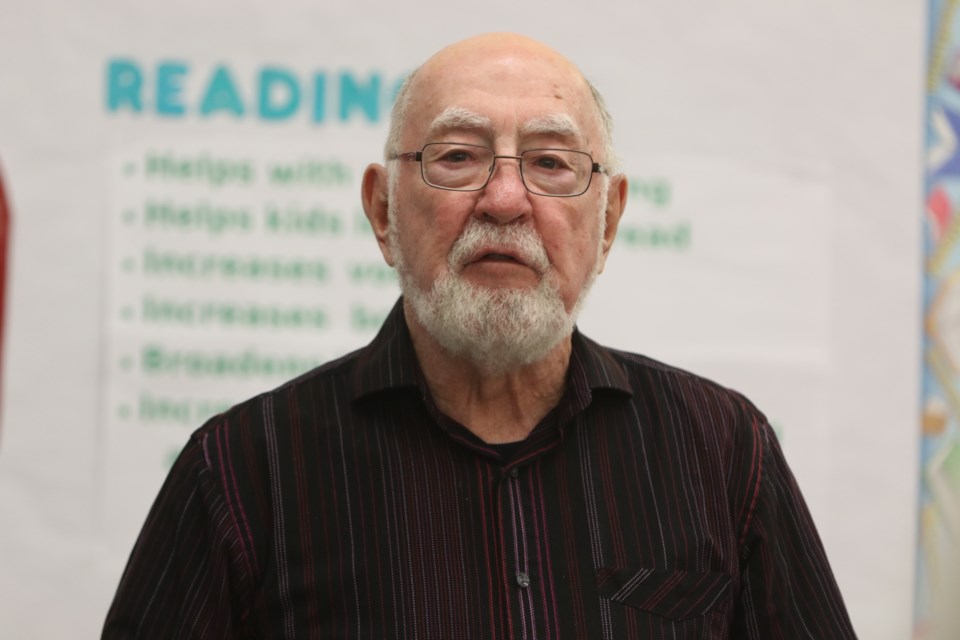HUMBOLDT — A poet recognized by the lieutenant governor for his lifelong contribution to the arts said the secret to writing success is just to continue writing.
“I've known lots of writers along the way, who haven't kept doing it and that's what you have to do, because it's very competitive,” said Robert Currie. “You have to have a thick skin because you're going to get rejected over and over again. Every writer does.”
Currie, who’s from Moose Jaw, came to the Reid-Thompson Public Library Feb. 19 to read some of his poems, most of them from his newest collection, One-Way Ticket. The poems touched on subjects ranging from childhood memories, finding a cancer survivor's fake breast, the game of hockey, the thought’s of a school shooter’s mother and a man who’s come home after many years seeking money from his parents.
The poet has won the 2009 Lieutenant Governor's Lifetime Achievement Arts Award, became a Saskatchewan's Poet Laureate in 2007 and was one of the first chairs of the Saskatchewan Writers Guild.
“If I don't write eventually, I just feel like I'm missing something in life,” he said. “Once I get going writing something, I feel very much alive and time just flies. The hours go by very quickly when I'm writing and I enjoy that.”
Currie began writing as a kid, beginning his career when he made a submission to Canadian Boy.
“They had writing contests and every month and that was where I published my first story, so it was really neat to be a published writer when you're just a kid.”
The poet said he gains inspiration by looking at the past, being observant about what’s going on and being interested in general. He had some advice for aspiring poets.
“Read a lot to find writers whose work you admire and notice what's good about it, why do you admire them, and then just keep doing that.”
Currie said the most important part of writing professionally is to keep doing it, adding he’s heard there’s almost like a decade-long apprenticeship to become a professional.
“If you can write every day that really helps,” he said I'm lucky because I have little corner in the Moose Jaw library where I go to write and they let me keep some books there, dictionary, thesaurus, that kind of thing. It's just like having an office to go to and so I go there five days a week to write.”



